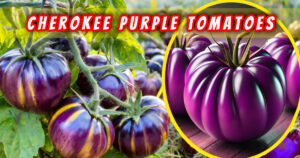Vinegar is a household product that many people use for cleaning, cooking, and other home remedies. However, did you know that vinegar can also answer the question: does vinegar kill grass and weeds? As a natural alternative to chemical herbicides, vinegar offers an eco-friendly solution for controlling unwanted vegetation in your garden or lawn.But how does it work? And is it really effective? In this blog post, we’ll explore 5 reasons why vinegar is an effective grass killer, how to use it safely, and whether it’s the right choice for your lawn care routine.
Does Vinegar Kill Grass Really? The Science Behind It
Vinegar, particularly white vinegar, contains acetic acid, which is the active ingredient responsible for killing grass and weeds. Acetic acid breaks down plant cell membranes, leading to dehydration and eventual death of the plant. When applied directly to the leaves of grass or weeds, the acetic acid causes the plant to dry out and wither, especially in hot and sunny conditions.
The concentration of acetic acid in household vinegar is usually around 5%, which is strong enough to kill most weeds and grasses. However, more stubborn or perennial weeds may require a higher concentration, typically found in horticultural vinegar (with acetic acid levels of 20%). While vinegar is effective in killing grass, it’s important to understand that it’s non-selective, meaning it will kill any plant it comes into contact with, including flowers and other desirable plants.
How to Use Vinegar to Kill Grass Safely
Using vinegar as a natural herbicide is relatively simple, but it requires careful application to avoid harming other plants or your lawn. Here are some steps to follow when using vinegar to kill grass:
- Choose the Right Vinegar: For minor weeds and grass, standard household vinegar (5% acetic acid) should suffice. For tougher weeds, opt for horticultural vinegar with a higher concentration.
- Use a Spray Bottle: Pour the vinegar into a spray bottle to target specific areas of unwanted grass. This allows for precise application, minimizing the risk of damaging surrounding plants.
- Apply on a Sunny Day: Vinegar works best in direct sunlight, as heat accelerates the drying process. Apply vinegar on a dry, sunny day for maximum effectiveness.
- Protect Other Plants: Be cautious when spraying near flowers, vegetables, or other plants. You can use cardboard or plastic barriers to shield desirable plants while applying vinegar to grass or weeds.
- Reapply if Necessary: Depending on the type of grass and the weather conditions, you may need to reapply the vinegar after a few days. Vinegar is most effective when applied consistently.
By following these steps, you can effectively kill grass without relying on chemical herbicides.
How Long Does Vinegar Take to Kill Grass?
One of the common questions people ask is: how long does vinegar take to kill grass? The answer depends on several factors, including the type of grass, the concentration of vinegar, and the environmental conditions at the time of application.
In most cases, you will begin to see visible results within 24 hours after applying vinegar to grass, especially on a hot and sunny day. The grass will start to turn brown and wilt as the acetic acid dehydrates the plant cells. For full eradication, it may take 2-3 days for the grass to completely die, but tougher grasses or weeds might need a second application.
It’s important to note that vinegar works best on young, small weeds and grass. Larger, well-established plants may require multiple treatments or stronger vinegar solutions.
Is Vinegar Safe for Lawns?
A significant concern for many homeowners is whether vinegar is safe for their lawn. The truth is, while vinegar is effective at killing grass and weeds, it’s non-selective and can damage any plants it touches. If you’re using vinegar to spot-treat areas of unwanted grass, it’s crucial to be precise in your application to avoid accidentally harming other parts of your lawn.
If vinegar comes into contact with your lawn, it can kill the grass in that area, leading to brown patches or dead spots. However, vinegar does not affect the soil’s long-term fertility. Once the vinegar evaporates, the soil will return to its normal pH levels, allowing new grass or plants to grow again. If you’re looking to remove grass from specific areas like driveways, sidewalks, or flower beds, vinegar is a safe option. However, it’s best to avoid widespread application on lawns where you want to maintain healthy grass.
Want to dive deeper into how vinegar affects grass? Check out this in-depth guide on will vinegar kill grass for more surprising insights!
The Pros and Cons of Using Vinegar to Kill Grass
Before you start using vinegar as a grass killer, it’s important to weigh the pros and cons to determine if it’s the best option for your needs.
Pros:
- Eco-Friendly: Unlike chemical herbicides, vinegar is a natural, biodegradable product that doesn’t harm the environment.
- Cost-Effective: Vinegar is inexpensive and readily available at grocery stores, making it a budget-friendly alternative to commercial weed killers.
- Non-Toxic: Vinegar is safe for pets, children, and wildlife, as it doesn’t contain harmful chemicals that can linger in the soil or water supply.
Cons:
- Non-Selective: Vinegar kills all plants it touches, not just grass and weeds. You need to be cautious when applying it near desirable plants.
- Temporary Effect: Vinegar kills the visible parts of the plant, but it may not always destroy the roots. This means that some weeds or grasses may regrow after treatment, requiring multiple applications.
- Limited Effectiveness on Perennial Weeds: While vinegar works well on young or annual grasses, tougher perennial weeds may require stronger solutions or additional treatments.
By understanding these pros and cons, you can make an informed decision on whether vinegar is the right grass-killing method for your lawn care needs.
What Type of Vinegar Works Best for Killing Grass?
Not all vinegars are created equal when it comes to killing grass. The type of vinegar you use can significantly impact its effectiveness. For most household applications, white vinegar with 5% acetic acid is commonly used to kill grass and weeds. This vinegar is widely available and affordable, making it a go-to solution for many homeowners.
For tougher weeds or larger areas of grass, horticultural vinegar, which contains 20% acetic acid, is more effective. This type of vinegar is much stronger and can tackle deep-rooted weeds that may not respond to regular vinegar. However, horticultural vinegar should be used with caution, as its higher concentration of acetic acid can cause skin irritation and is harmful if ingested or inhaled.
Vinegar vs. Commercial Weed Killers: Which Is Better?
When deciding whether to use vinegar or a commercial weed killer, it’s important to compare the two based on effectiveness, safety, and cost.
- Effectiveness: Commercial weed killers often contain strong chemicals that penetrate the roots and kill plants more effectively than vinegar. However, vinegar is sufficient for small-scale applications, especially for homeowners looking for a more natural option.
- Safety: Vinegar is a safer option for pets, children, and the environment compared to chemical herbicides, which can be toxic and harmful if misused. Vinegar poses minimal risk, making it ideal for eco-conscious individuals.
- Cost: Vinegar is a budget-friendly solution for small lawns and gardens, whereas commercial weed killers can be more expensive and contain harmful chemicals that might require specific disposal methods.
Ultimately, the choice between vinegar and commercial weed killers depends on your lawn care goals and whether you prioritize safety over long-term effectiveness.
Can Vinegar Kill Weeds Without Harming Grass?
The simple answer is no—vinegar is a non-selective herbicide, which means it will kill any plant it touches, including grass. However, if you are looking to kill weeds without harming the rest of your lawn, vinegar may not be the best choice for widespread use.
For more targeted weed removal, consider using a spray bottle to apply vinegar directly to weeds without allowing it to drift onto healthy grass. You can also use physical barriers like cardboard or plastic to shield surrounding plants while treating specific weeds with vinegar.
Conclusion: Should You Use Vinegar to Kill Grass?
In conclusion, vinegar is an effective and eco-friendly solution for killing grass and weeds, particularly in small areas or for spot treatments. It offers several benefits, including being affordable, non-toxic, and readily available. However, it is important to remember that vinegar is non-selective, meaning it will kill any plants it comes into contact with. For homeowners seeking a natural alternative to chemical herbicides, vinegar can be an excellent choice, provided it is applied carefully and with the right precautions.
If you are dealing with a larger lawn or more resilient weeds, you may need to weigh the pros and cons and consider whether a stronger herbicide or alternative method might be more appropriate.
FAQs About Vinegar and Grass Killing
- Does vinegar kill grass permanently?
No, vinegar kills the visible part of the grass, but the roots may survive, meaning the grass could regrow. - How long does vinegar take to kill grass?
Vinegar typically starts working within 24 hours, with full results visible in 2-3 days. - What type of vinegar works best for killing grass?
White vinegar with 5% acetic acid works well for most applications. Horticultural vinegar with 20% acetic acid is stronger for tougher weeds. - Is vinegar safe for pets and children?
Yes, vinegar is a non-toxic alternative to chemical herbicides, making it safe for use around pets and children. - Can vinegar harm the soil?
Vinegar may lower the pH of the soil temporarily, but it does not cause long-term harm to soil fertility. - Will vinegar kill all plants or just weeds?
Vinegar is non-selective, meaning it will kill any plants it touches, not just weeds. - Can I mix vinegar with other ingredients to make it more effective?
Yes, some people mix vinegar with salt or dish soap to improve its weed-killing effectiveness. - Does vinegar kill grass roots?
No, vinegar primarily affects the leaves and stems. It may not penetrate deeply enough to kill the roots of larger plants. - How often should I apply vinegar to kill grass?
You may need to apply vinegar more than once for tough grass or weeds, typically every few days until the plants die completely. - Is vinegar better than chemical weed killers?
Vinegar is a safer, eco-friendly option but may not be as long-lasting or effective on tough weeds compared to chemical herbicides.




